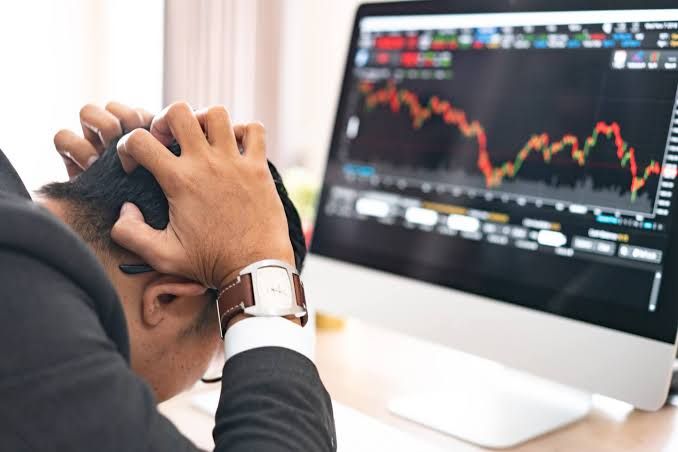
Emotions play a significant role in trading decisions and can have a huge impact on trading outcomes. Some common emotions that affect traders include greed, fear, and impatience. These emotions often lead to irrational decision-making, which can result in losses. Here are some key aspects to consider:
Greed
Greed is a powerful emotion that can drive traders to take excessive risks or hold onto winning positions for too long, hoping for even higher profits. This lack of discipline and an unwillingness to take profits at a reasonable point may turn our gains into losses when the market reverses. Irrespective of how confident we are of our analysis, the crypto market is so volatile that a second is enough to get us rekted. It is not a rule that we must always hit Take profit. Sometimes we take a profit even before the Take profit price if the profit at hand is reasonable and covers the trading fees, and there are signs that the market sentiment is shifting.
Fear
Fear is another dominant emotion that can adversely affect trading outcomes. Fear often arises when traders face potential losses or market uncertainty. In such situations, traders may panic and make hasty decisions, such as selling positions prematurely or avoiding potentially profitable trades altogether. Fear-driven trading can lead to missed opportunities and prevent traders from realizing their full potential.
However, this doesn't mean that we can't cut our losses when there is a need to do so. We just have to strike a balance between being afraid to go for a little more profit, and being afraid because the market appears to be slightly going against us, thereby cutting our loss and being TOO greedy to take profit.
Impatience
Impatience can cause traders to deviate from their trading plans and seek immediate results. For example, when trade appears to be going against a trader and suddenly it appears that he is recovering, some traders go as far as increasing the leverage with the hope of recovering faster. Conversely, some increase their leverage if the market is going in their favor to reach their Take profit faster. Most time this act of impatience with the trade usually leads to loss.
Excitement
Trading can be exhilarating, especially during periods of high market volatility or when traders experience significant gains. However, excessive excitement can cloud judgment and lead to overconfidence. At this point, the trader is neglecting to take profit or even setting a higher take profit range. In some cases, if the market reverses, the trader ends up getting either a lower profit or a loss.
To mitigate the impact of emotions on trading, traders must develop emotional discipline and adopt strategies to manage their emotions effectively. Some of the strategies include;
Creating a well-defined trading plan with clear entry and exit strategies, risk management rules, and profit targets can help traders stay focused and minimize emotional decision-making. Following the plan consistently and objectively analyzing market conditions can help mitigate the influence of emotions.
Implementing proper risk management techniques, such as setting stop-loss orders and position sizing, can help traders limit potential losses. By defining acceptable levels of risk in advance, traders can reduce the impact of fear and impulsive decision-making during volatile market conditions.
Incorporating technical analysis tools and indicators into trading strategies can provide traders with objective signals based on market trends and price patterns. Relying on these indicators can help traders make informed decisions rather than being driven solely by emotions. Indeed, T.A. sometimes appears to be ineffective but it is a better approach to trading.
This stategy also works in bed.